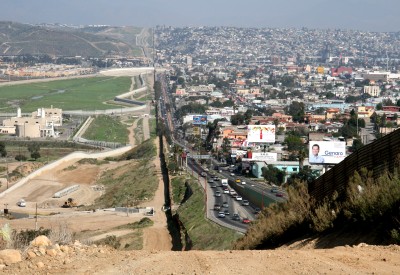If Mexico Doesn’t Pay for Wall, US Undocumented Will: US Attorney General Sessions

The attorney general suggested that “mostly Mexicans” could see their taxes investigated as a source of funding for Trump’s border wall.
The administration of U.S. President Donald Trump continued to pursue its menacing stance toward undocumented Mexican immigrants in the United States as Attorney General Jeff Sessions suggested that if Mexico doesn’t pay for a proposed border wall, individual Mexicans residing in the U.S. could be targeted and forced to pay a part of the cost.
Speaking to ABC’s This Week Sunday, the 70-year-old former Alabama senator — recognized as one of the most aggressively anti-immigrant figures in Trump’s Cabinet — seemed to suggest that a potential source of funding could be found in tax credits given to taxpayers who don’t qualify.
The remark comes as the White House threatens a shutdown of the U.S. government if Congress doesn’t accede to Trump’s demands to fund the construction of the 1,250-mile wall. The Trump administration has been desperate to score a big win during its first 100 days in office, a period characterized by multiple broken campaign promises, abrupt reversals and failed policy moves.
“I know there’s US$4 billion a year in excess payments, according to the Department of the Treasury’s own inspector general several years ago, that are going to payments to people — tax credits that they shouldn’t get,” Sessions said.
“Now, these are mostly Mexicans, and those kinds of things add up,” he asserted. “US$4 billion a year for 10 years is US$40 billion. There are a lot of ways we can find money to help pay for this.”
Sessions appeared to be citing a July 2011 report by the U.S. Treasury Department that detailed how workers lacking social security numbers received US$4.2 billion in refundable tax credits, a benefit overwhelmingly received by the parents of U.S. citizens.
The report — seized upon by Trump during an election campaign that leaned heavily on immigrant scapegoating — failed to specify the nationality of tax credit recipients.
Additionally, while undocumented immigrants make up less than 3 percent of the U.S. population, they also account for 8 percent of local and state tax revenue, according to a report last year by the Institute on Taxation and Economic Policy.
In a characteristically equivocal and confusing tweet, the U.S. head of state suggested Sunday that “Eventually, but at a later date so we can get started early, Mexico will be paying, in some form, for the badly needed border wall.”
Trump has made repeated claims that Mexico will repay the United States for the wall if Congress funds it first. Nevertheless, the government of Mexico has strongly rejected Trump’s suggestion that it would finance the wall while the former real estate mogul has failed to lay out a convincing plan for such a repayment.
The “wall” is expected to cost as much as US$21.6 billion, based on a U.S. Department of Homeland Security internal report.
During a visit last week to El Paso, Texas, Sessions resorted to xenophobic hyperbole when describing the U.S.-Mexico border as “ground zero” and “the front lines” in a fight against criminal networks, human traffickers and drug cartels, drawing criticism from border leaders and migrant justice advocates.
“Unfortunately, our nation’s chief law enforcement officer thinks xenophobic, racist rhetoric that paints a false picture of our border and dehumanizes migrants will continue to pay cheap political dividends in the service of a narrow agenda to block justice for immigrants,” Dylann Corbett of the Hope Border Institute said in a statement following Sessions’ border appearance, adding that his repeated threats against migrant communities constitute a “shameful political charade.”

